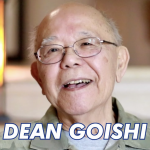“Is this Sean Strub? Good. I understand that ACT UP is going to throw blood on my dear friend Pat Buckley at the Skating for Life Benefit. Ashton Hawkins says you can get them to stop it. I command you to do so. Now!”
I quickly informed Mr. Woolley that he not only had a profound misunderstanding of how ACT UP operates, but was sadly misinformed about my -- or any individual’s -- influence with the group. Furthermore, ACT UP had never thrown blood on anyone, and violence was not an accepted ACT UP tactic.
I also commented that socialite Pat Buckley had a lot of nerve hosting an AIDS benefit when she couldn’t even repudiate the call of her reactionary husband, William F. Buckley, to tattoo people with HIV on their buttocks. I might also have mentioned something about my unwillingness to accept commands from anyone, let alone pretentious, self-important Upper East Side queens.
The conversation quickly escalated in decibels and declined in civility before Woolley finally slammed the phone down -- blaming me, ACT UP and AIDS activists in general for every failing in the fight against AIDS.
Fast-forward to the summer of 1990. I’m running for U.S. Congress. Two friends host an upscale fundraiser for my campaign, with about 100 of the so-called “A-Gays” sipping cocktails. I gave my impassioned “apathy of the affluent” speech about AIDS and angered some of the “better boys” in attendance. I had long since figured out this audience wasn’t exactly jumping up and down to support me, and I was at a point where I didn’t really care about offending them.
After my speech, a portly man in an ascot approached me and said, simply, “Good speech.” He stuffed a check into my front shirt pocket and introduced himself as Robert Woolley. I gulped, quite certain that he had not remembered our hostile phone conversation. After a few minutes of friendly chatter, my curiosity got the best of me. Did he remember, I asked, that we had spoken previously?
Woolley said that he not only remembered, but that, at the time, he thought I was “a real asshole.” After a pause, he continued: “I’ve changed my mind.”
To me, that encapsulates the magic that was Bob Woolley: Insistent, demanding, loyal to his friends and dedicated to ending the epidemic. As AIDS demanded more of him, Robert grew to become one of the most effective activists I have known. In the process, as our different brands of activism merged into a common and sometimes angry quest for survival, we grew to be friends.
The New York Times obituary described him as “a man possessed” when it came to raising money for AIDS, and I would concur. Robert was incapable of saying no to the epidemic. With his close friend, Judy Peabody, Robert Woolley was more responsible than anyone else for getting the social, economic and power elite of New York to address the AIDS crisis.
While he served on the board of Gay Men’s Health Crisis, he raised funds for dozens of AIDS organizations. When Robert wrote his memoir, he donated all the proceeds to GMHC. When Robert’s health started to seriously decline, he organized a fundraising auction of mostly his own belongings. Some found it odd for him to watch the disposition of his own treasures, but Robert enjoyed knowing in which loving homes his collection would rest.
He told me once that, like many gay boys from the hinterlands, he spent his first years in New York City desperately building a reservoir of social cachet. That may be so, but there is no doubt he passed his last years elegantly spending that reservoir of cachet on behalf of people with AIDS.
I am sure he found much more joy in the latter than he did in the former.






Comments
Comments